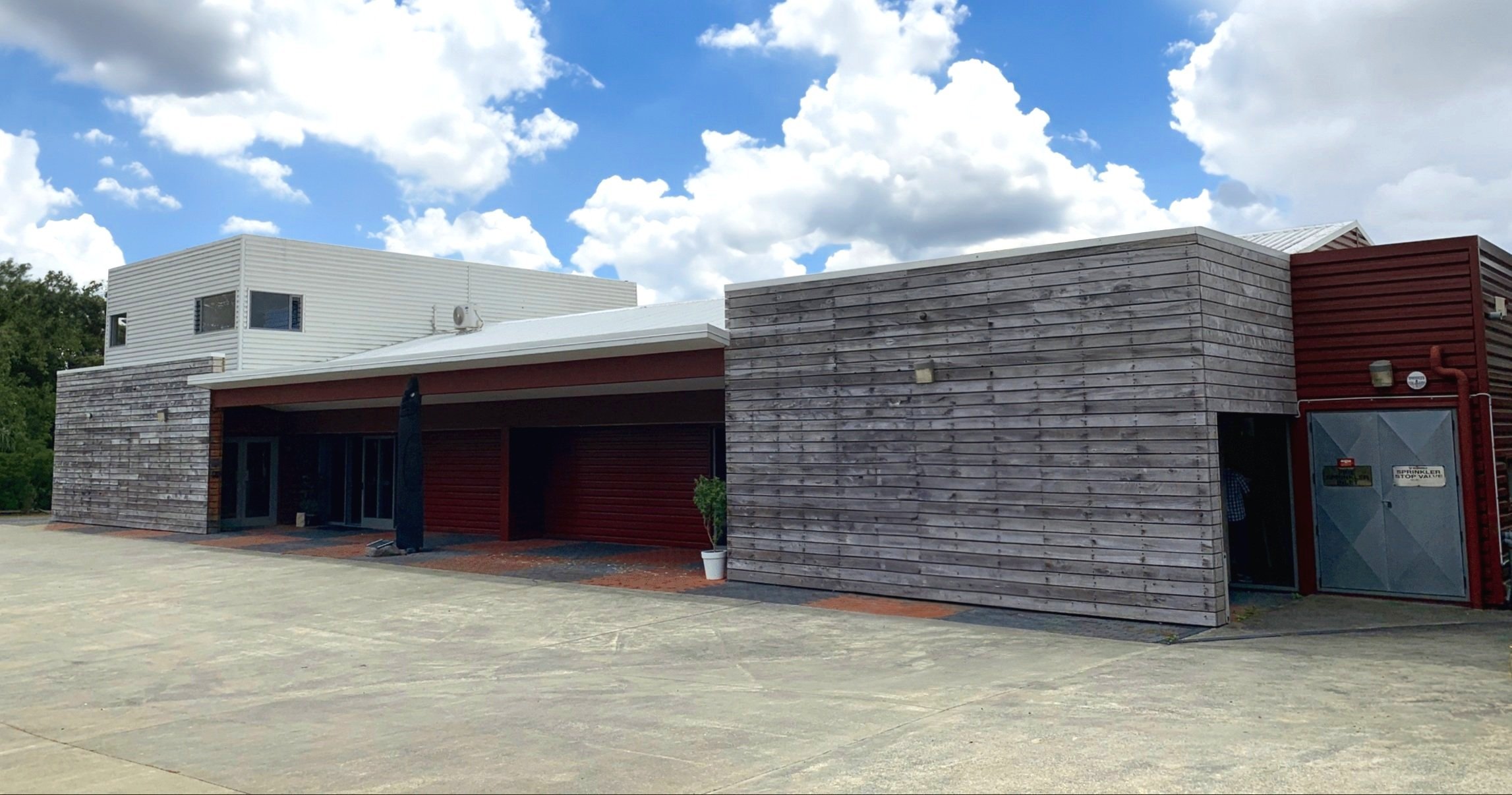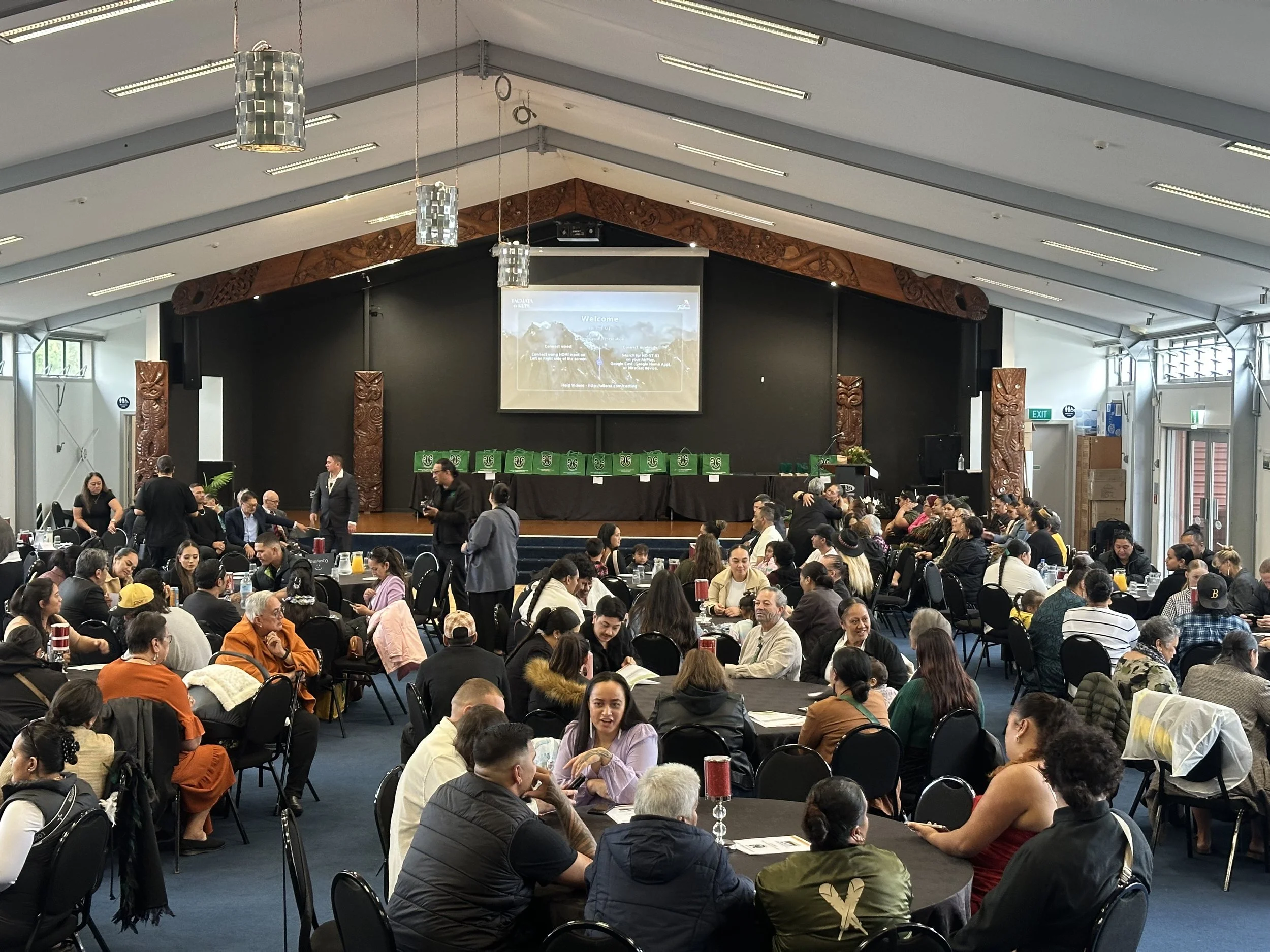
OVERVIEW
Capacity: 300 people (max)
Sleeps: 150 people (max)
Convenient central Auckland location
Large stage – AV, projector, lighting
High-end WIFI, TV, audio connectivity
Public road parking and some off-road
Furniture, Cutlery provided
In-house catering staff and bespoke menus
Fully equipped commercial grade kitchens
Fully accessible (ramps, showers, toilets)
Showers, Toilets (male and female)
HOURS
8:00 AM - 11:00 PM
(Monday – Sunday)
*Excludes public holidays
Note: For overnight stays, guests receive 24/7 hours access and use
FAQ’s
-
Koha (a gift or contribution) is a gesture of respect. It’s usually a monetary donation given during the pōwhiri or visit. The amount is up to you and should reflect your appreciation for being welcomed onto the marae.
-
Tikanga refers to Māori customs and protocols. At Te Māhurehure, Tikanga applies to specific Māori kaupapa and cultural contexts however is flexible for private booking. E.g. Removing your shoes, consuming alcohol and eating food in specific spaces is left to event organisers to decide. Tapu (sacred, prohibited) protocols include not sitting on pillows or tables, and showing respect during formal ceremonies like pōwhiri. If unsure, follow the lead of the kaikaranga or kaumātua.
-
Yes, the marae welcomes diverse groups and individuals. Conferences, AGMs, weddings, birthday parties and retreats are all common, whether large or small. However when booking an induction process is required – in extremely rare circumstances, the marae reserves the right to decline a booking request for culturally inappropriate cause for concern. Please book through our website and enquire if you feel you need more clarity on whether your visit aligns with our purpose, schedule and protocols.
-
Dress respectfully and modestly. For formal occasions like pōwhiri, we recommend tidy clothing – dresses or skirts below the knee, or pants and shirts. Remove headwear when karakia (prayer) are conducted unless it’s for cultural or religious reasons. Shoes should be easily slipped on and off if your event organizer decides to adopt a traditional Māori no-shoes policy. For those staying over, most wear modest pajamas or trackies.
-
Te Māhurehure Marae is a safe space for all ages particularly tamariki and kaumatua. State or the art alarm systems are installed and we have staff who live on-site – available at any time during bookings.
IMPORTANT INFORMATION
Tikanga me Kawa
(Cultural protocols and policing)
A Pōwhiri is an official welcome onto our Marae. If you would like to be received in this way, we are happy to assist with the arrangements. We can also facilitate any additional cultural practices like karanga, karakia, waiata and whaikōrero if culturally appropriate and at an additional cost.
Alcohol & Drugs
No drugs are tolerated on Te Māhurehure Marae grounds and no alcohol can be brought into our grounds other than that which is here (if applicable). For private functions our Booking Manager will consult with you around alcohol consumption.
Health & Safety
Your health and safety is paramount to us. We have basic first aid kits on site and our evacuation points will be identified upon your arrival. Any hazards or safety concerns must be reported to Marae staff. Dietary requirements and allergies must be identified to Management prior to your stay.
Noho (Stays)
Noho are authentic Māori stays at a Marae. This is a unique style of communal, open plan sleeping on single mattresses. Our marae can cater for large stays of up to 100 people. We provide freshly laundered mattresses and linen. Please bring your own blankets and sleeping bags.
Meals
We can provide catering for your breakfast, lunch and dinner.You will be served authentic, delicious Māori and New Zealand cuisine made with fresh ingredients by our talented chefs in a group setting.
Clothing & Essentials
Daywear - modest, smart casual and comfortable attire with no offensive slogans/graphical tees.
Footwear - easy to remove with some socks as it is Māori custom to remove your shoes in certain areas.
Personal care - please pack a toiletry bag, including a towel, to use in the bathrooms with hair and body wash along with a toothbrush and paste.
Cleaning
You are responsible for maintaining the cleaning standards of our whare when visiting or booking. Please ensure you and your attendees leave in the same superb condition you will have found them.
Recycling
During your stay please recycle your rubbish into our allocated bins. There may be a seperate charge for extra rubbish when additional waste disposal is required
Payment
We welcome cash, PayPal and internet banking. To pay the remaining balance on venue bookings we also have onsite Eftpos terminal accepts Mastercard, Visa and American Express.
BOOKING
We’re so glad you're considering Te Māhurehure Marae for your event. Here’s how our booking process works:
01.
Fill in our Booking Form
Start by completing our online booking form. Once we’ve received it, you’ll get an email confirming we’ve got your request.
02.
We’ll be in touch with your Quote
We’ll contact you to confirm available dates, costs, and other details via email or phone call.
03.
We’ll issue a confirmed Booking
If everything looks good, and we’re both locked in – we’ll send you a confirmed itinerary and booking so you know exactly what to expect.
04.
We’ll take you through a short Induction
Before your booking, we’ll invite event organisers to our premises for a short and very casual induction tour. Note: this is only mandatory for those who have never booked before.
05.
All set to go!
We’ll stay in touch if you have any amends before your event. Note: A 50% deposit is due within four weeks of making your booking and the remaining balance should be paid two weeks before your event.
Whether you're planning a hui, wānanga, celebration or special gathering, we’re here to help bring it to life at Te Māhurehure Marae. Our spaces are welcoming, our process is simple, and our team is here to support you every step of the way.
Click below to get started — we look forward to hearing from you and hosting you.
















